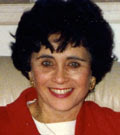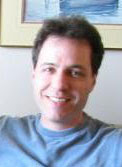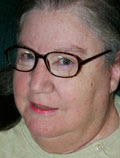You know how some girls, they like to say how their man used to be nice and all? How there was this time before the yelling and before he laid hands on her, and how that was the time she learned to love him? You know how she’ll smile all sad when she says that and you just know she’s got some Disneyfied picture all hazy and soft in her head? And you can tell she’s waiting for that guy to come on back to her. Like he’s going to wake up one day and realize what a sumbitch he’s been and he’s going to buy her roses and do the laundry and read their bastard kids a book and carry her on up to their bed like he was missing her the way she’s been missing him. You can see it on her face clear as a bruise.
Well, I’m not like that. Never been. Because Nate, he wasn’t ever like that either. He was mad-dog mean from the day we met. He smacked me before he ever kissed me. And I was okay with that. I could work with that. He was beautiful. Looked to be carved from deep white granite, cold and hard, made me shiver the first time I touched his arm. I was all dark and small and he was all light and big, and we were both already cracked. We fit together like two pieces of a broken cup. And I would’ve kept on gluing us back together forever if he hadn’t touched that four-year-old down the way.
That sweet kid, no bigger than a cherub on a fountain, after Nate, she was busted. Sure as if he’d taken a hammer to her, she was busted on the inside. There was no putting her back.
And after that, part of me broke off and went missing. And no matter how much glue I used, everything we had, sick and sad as it was, all that just spilled on out through where that missing chunk once was.
When I picked up his gun from the garage bench where he liked to clean it after a hunt, that rifle was solid and heavy and righteous in a way that just blew away the rest of that cup. By the time I walked through our tiny house and woke him from our little bed, sometime after I shoved that gun in his mouth like it was a dick he hadn’t been planning on, but before I pulled that trigger, sometime in there, I found my calling.
I pulled that trigger as if the harder I pulled it the harder that bullet would hit him. I pulled that trigger and it was good.
I was a hammer. And I was just looking for something else to smash.
Somehow the softest little girls, they end up with the hardest boys. And that meanness, it settles over them, hardening over them like a cement shell. Some of those girls just get crushed under the weight of that shell. Others die right inside it, never looking a bit different. But some of those soft little girls, they take that shell and they harden all the way through. Those are the ones that stand up. And when one of those girls stands up, those boys best back down if they know what’s good for them. ‘Course, if they had that kind of sense, I’d be out a job. And I do like my job.
Still, a soft little girl, even one that’s found her own meanness, she doesn’t want anyone dead. Not if she can help it. She’d rather just up and leave. She’d rather the restraining order worked. She’d rather that walking away didn’t mean exposing her back. But there’s not many that care about her rathers.
I did a few favors in the beginning. Did a little time, too. I was what you might call an on-the-job learner. Focus was an issue in those early days. When I got going I got sloppy. There was some man who needed to get gone, I would get him there. Didn’t matter so much how. Hell, didn’t matter so much why. Some girl pointed me in the right direction and I was all about the crushing.
But I learned some skills behind bars. A sort of vocational training, because there were a whole lot of girls there thanks to some man. Some man who turned them out or hooked them up or turned them in to save his own ass. By the time I got out and settled in Pasadena, not a rose to be found in my neighborhood, I was a long way from home, with a long list of names. My get-gone list. I spent my 30s on that list. One at a time, I made the world a little lighter.
I got better with each one, too. And I made connections. You take out the husband of some woman lawyer, and she owes you big time. But you bring down a molester for a cop whose little girl is turning ten? Damn, it’s like a get-out-of-jail free card. I even got a judge at the Ninth Curcuit Court of Appeals whose daddy finally took a tumble—the kind that leaves broken bones and a sweet inheritance. She’s the one who turned me onto a sliding scale. Everyone pays what they can. When you love your work the way I do, it’s not a bit about money. But it’s nice having my schedule freed up. And the move up to a loft, that didn’t hurt either. Me and the Playhouse District, with its bustle and noise, we get along just fine.
Yeah, now, I’m doing alright. Dali Cade, Hit Chick for Hire. Shit, I should have cards printed.
© Copyright 2009 Cindie Geddes All rights reserved.
 Cindie Geddes runs Flying Hand Writing Services in Reno, Nevada. She writes for love and money, but like her narrator, she likes it best when both are involved.
Cindie Geddes runs Flying Hand Writing Services in Reno, Nevada. She writes for love and money, but like her narrator, she likes it best when both are involved.













